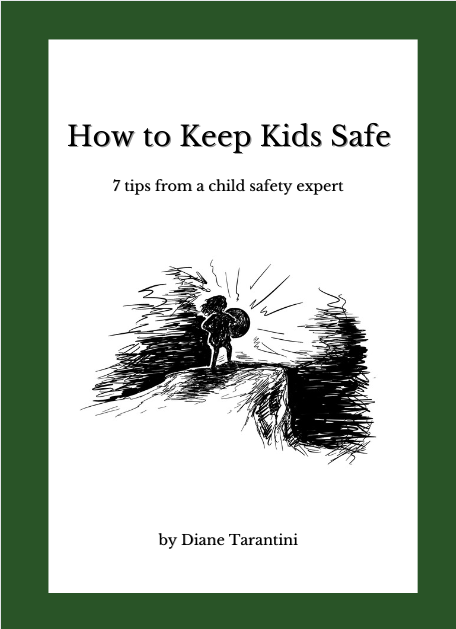(by Sarah Eshleman)
After resigning from teaching two years ago, I could no longer run from the mounds of books I had collected over the years in hope of reading one day. It was my dirty secret: I taught writing classes for seven years and earned an MFA, but I was still no good at reading. Before going on vacation that summer, I stuffed four books in my suitcase, doubtful that I’d crack a cover.
When I had exhausted every other activity, I opened the first book, Truth and Beauty by Ann Patchett. Next, Quiet, Susan Cain’s book about introverts. Then The Wizard of Oz. Day after day I returned to the pages only to have forgotten everything that I read the day before. Sometimes, when my mind wandered, I read the same lines over and over like a CD stuck on repeat. It felt very much like wasting my time. But as I pressed on, it became clear that reading is a skill. And as with most skills, the more you practice, the better you get.
Maybe you never learned to read well. Or perhaps you are a former book worm whose reading muscles have gone flabby. Here are eight tips I practiced while learning to read again.
- Read a little every day. Reading is a skill, and skills require constant practice. You won’t become a strong reader by reading one chapter every three months. Even Michael Phelps, perhaps the greatest athlete of all time, will atrophy if he goes a day or two without swimming laps. Once you’ve fallen into a reading routine—even if just a few pages a day—you’ll start looking forward to it. Always have another book in the chamber; when you finish one, start the next.
- Mark passages (Note: for monster’s only). I once saw a meme that separated the world into two kinds of individuals: 1. people who use bookmarks and 2.monsters.I don’t know which category you fall into, but me—I’m practically Godzilla. If a book isn’t dog-eared, starred, bent, and marked up with a pencil, I probably didn’t enjoy it (which counts me out for library books).So here is this monster’s suggestion: get friendly with your books. Mark favorite lines, star memorable passages. Write notes to yourself and to the book. If you can’t bring yourself to desecrate the sacred page, use sticky notes to make comments or to mark lines. These marks act as memory points, creating a break in your concentration and erecting a physical location on the page for your mind to remember. (Oh, read Marginalia by Billy Collins for a lovely tribute to notes in the margin.)
- Keep a reading journal. Studies have proven that handwriting notes in class strengthens the recall of information. The combination of watching words form on the page beneath our hand etches the message in our mind. Get a notebook and jot down your thoughts as you read. How did these passages make you feel? Or if that question scares you, ask yourself what you learned. Write down your favorite lines and any thoughts associated with the content. Look up unfamiliar words or references and make a note of them. Ask questions of the book and see if it answers those questions later on.
- Meditate and research. While you read, take short breaks to reflect on what you’re reading. Pause between scenes to reconstruct the action in your mind, to picture the landscape, or to imagine the characters. You might also ponder how the book relates to your life. Look up the author’s information and consider how the author’s era or biographical details may have informed the work. Investing this time in research and meditation deepens your understanding of the material, helping you comprehend and retain the information longer.
- Review what you’ve read. When you return to a book, scan the previous pages to remember where you left off. By the way, those marks and stars will help you review the highlights of the previous chapters so that you can quickly get on your way through the next chapter.
- Recall in the morning. I do most of my reading in the evening, right before I fall asleep. (Research suggests that reading before you fall asleep is actually healthy for your mind.). On my drive to work in the morning, I try to remember what I read the previous evening. However, when I can’t remember quite everything, I try to recall the crux or at least one or two details. This solidifies the story in my head, exercises my memory, and prepares me to pick up where I left off.
- Discuss it. Chat with someone about the plot, the information, the characters, the lines. This might be at Sunday dinner with the family or a coffee date with a friend or the lunch room with coworkers or at a book group. By recounting the story, your mind is forced to organize and articulate all the details you remember. (Oh, and as an added benefit, you’ll become an infinitely more interesting person, just by talking about what you’ve read.)
- Reread. If you’re like me, your list of books to read before the crypt is long and growing. It’s tempting to close a book and move on to the next, never to return. However, as this article discusses, rereading will most certainly increase your chances of comprehending, retaining, and gleaning the most from a book. You might be spending twice the time, but the benefits are worth it. Our dearth of time and excess of books is a good reminder to wisely choose which books we decide to invest in.
Reading is hard work at first. But the more you practice, the more enjoyable it becomes. I’ve read around 30 books since that summer. It has taken patience, determination, and even a little humility. But I’ve never regretted learning to read again.








